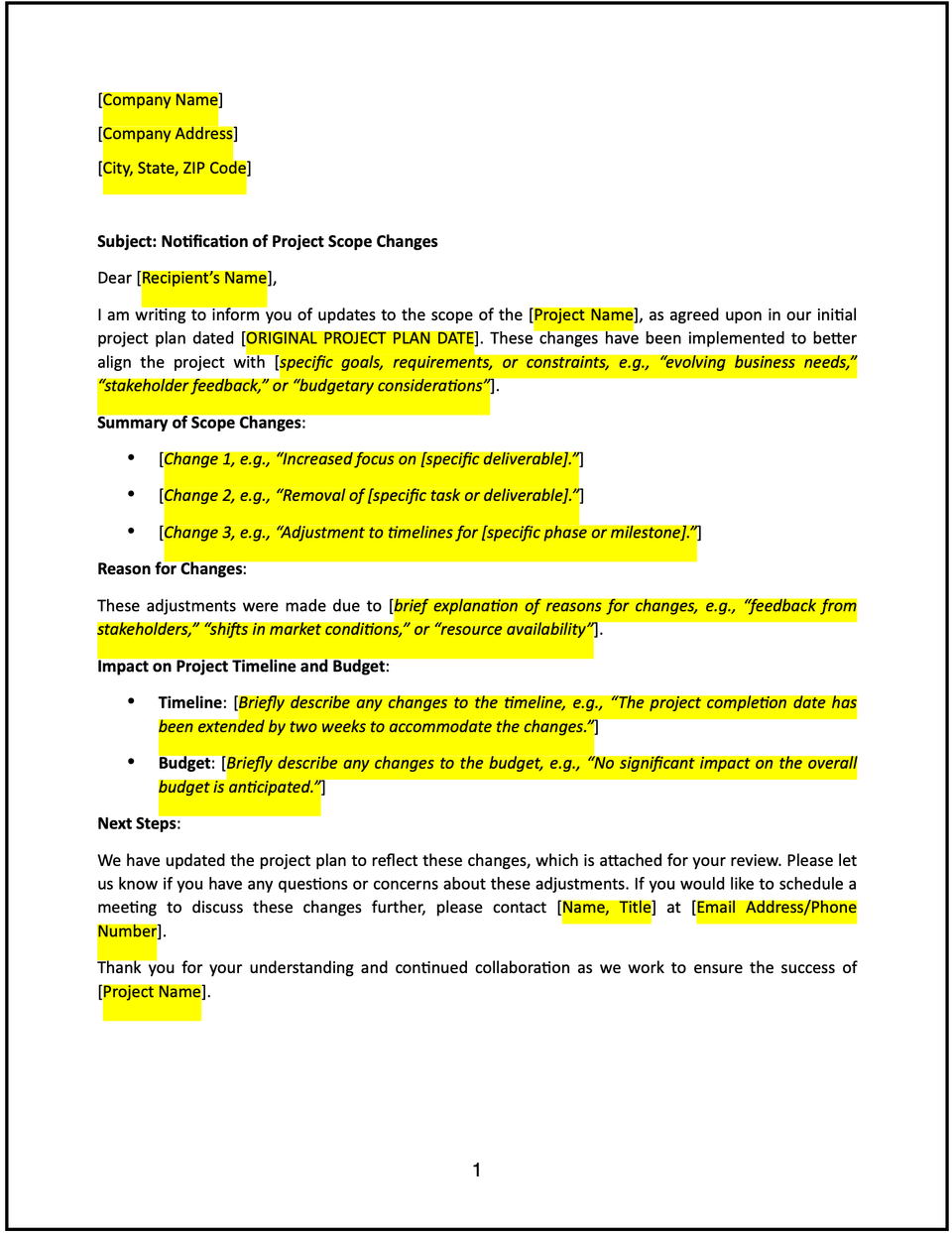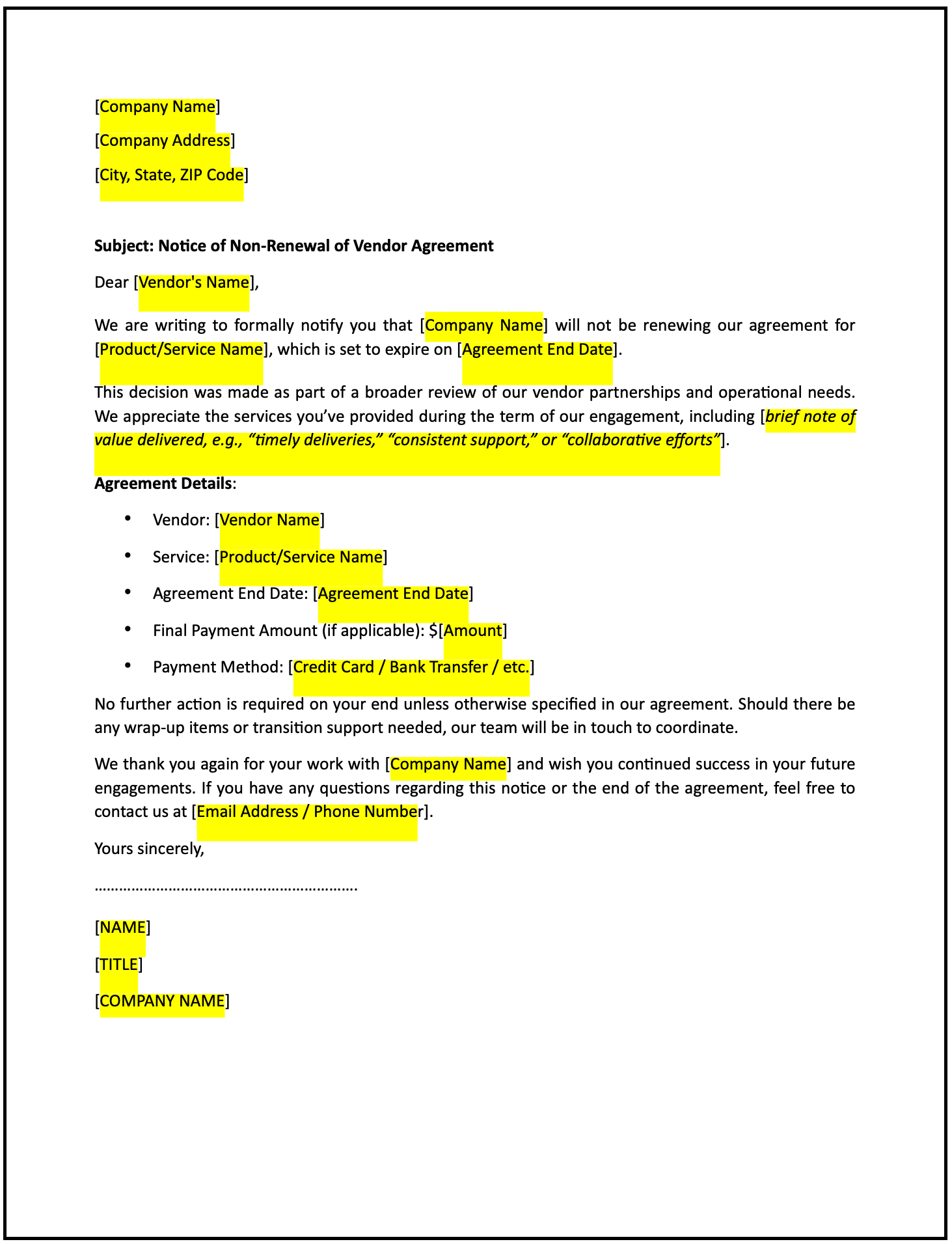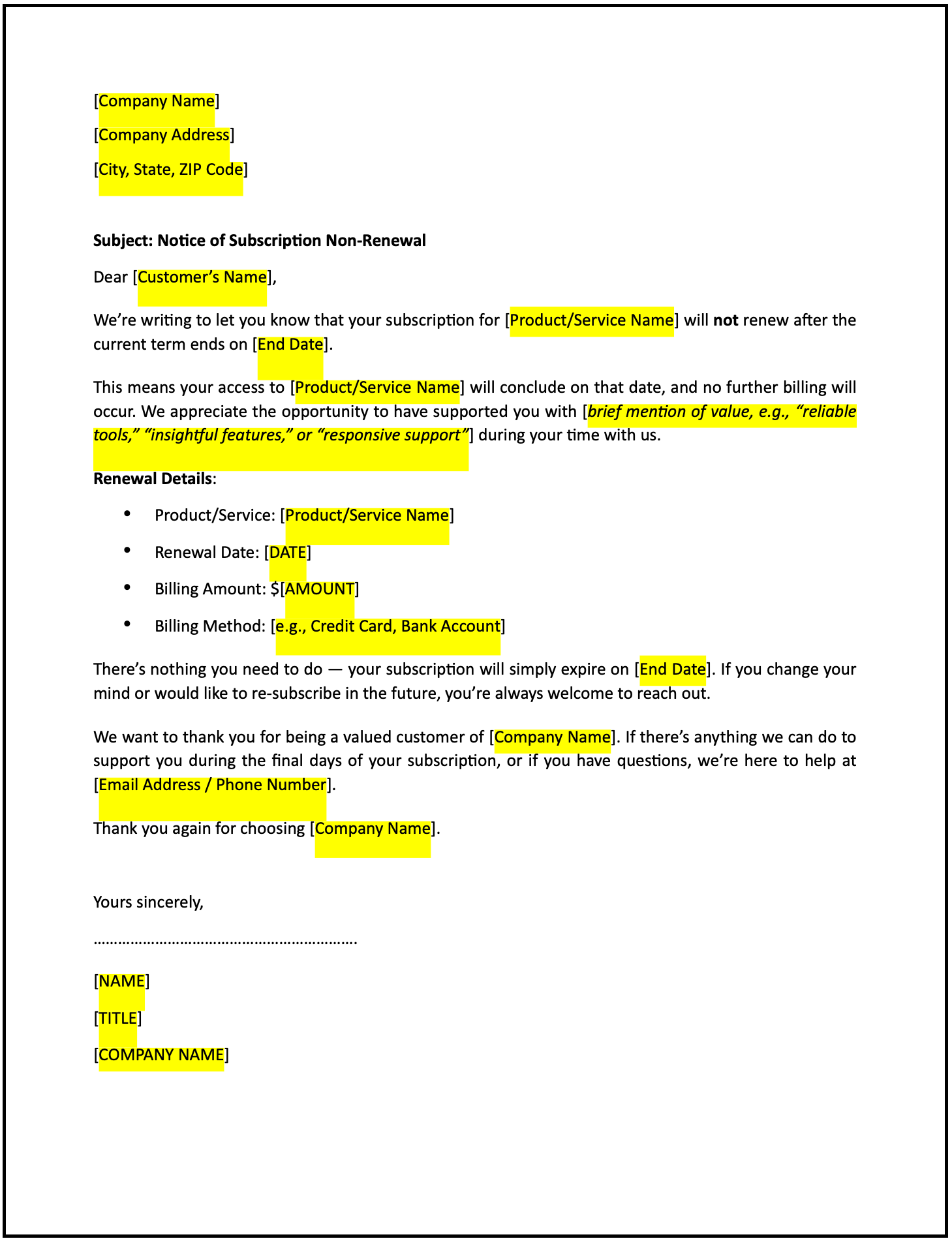Notification letter of project scope changes: Free template

Notification letter of project scope changes
A notification letter of project scope changes is a formal communication used to inform stakeholders, including consultants, vendors, or team members, about modifications to the agreed-upon scope of a project. This letter outlines the changes, explains the reasons, and highlights their impact on timelines, deliverables, or other aspects of the project.
How to use this notification letter of project scope changes
- Open with an introduction: Address the recipient respectfully and reference the project by name or identification number.
- Announce the change: Clearly state that the project scope has been modified and briefly summarize the key changes.
- Provide details: Outline the specific changes to the scope, such as added deliverables, adjusted timelines, or reduced requirements.
- Explain the reason: Briefly explain why the scope changes were necessary, referencing new priorities, resource availability, or unforeseen challenges.
- Highlight the impact: Describe how the changes affect project timelines, responsibilities, or outcomes, and provide any revised documentation or schedules.
- Request acknowledgment: Politely ask the recipient to review the updated scope and confirm their understanding or alignment.
- Emphasize collaboration: Reassure stakeholders of your commitment to achieving project goals and invite further discussion if needed.
- Maintain a professional tone: Ensure the letter is clear, respectful, and focused on fostering understanding and collaboration.
- Provide contact information: Include details for the recipient to reach out with questions or clarifications.
Benefits of using a notification letter of project scope changes
This letter ensures a structured and professional way to communicate scope modifications while maintaining alignment and collaboration. Here’s how it helps:
- Promotes transparency: Clearly communicating changes avoids confusion and builds trust.
- Reflects professionalism: A well-crafted letter demonstrates respect and attention to detail.
- Ensures alignment: Outlining changes ensures all stakeholders are informed and aligned with the updated scope.
- Encourages collaboration: Open communication fosters a cooperative approach to implementing changes.
- Supports project success: Addressing scope changes promptly minimizes disruptions and maintains project momentum.
Tips for writing an effective notification letter of project scope changes
- Be specific: Clearly describe the scope changes, their reasons, and their impact on the project.
- Use professional language: Maintain a respectful and constructive tone to foster collaboration.
- Provide context: Briefly explain why the changes are necessary and how they benefit the project.
- Highlight mutual benefits: Emphasize how the updated scope supports project goals and success.
- Include actionable steps: Share instructions for acknowledging the changes or discussing further details.
- Keep it concise: Focus on the key points while ensuring the tone is professional and solution-oriented.
Frequently asked questions (FAQs)
Q: What details should I include in this letter?
A: Include the project reference, a summary of the changes, their impact, and a request for acknowledgment or feedback.
Q: Should I personalize the letter?
A: Yes, addressing the recipient by name and referencing their role in the project demonstrates attentiveness and professionalism.
Q: Who typically sends this letter?
A: Project managers, business leaders, or organizational representatives overseeing the project typically send this letter.
Q: How formal should this letter be?
A: The tone should be professional and respectful, focusing on fostering understanding and collaboration.
Q: When should this letter be sent?
A: Send the letter as soon as scope changes are finalized to ensure timely communication.
Q: Can this letter include revised documentation?
A: Yes, attaching updated project plans, schedules, or scope documents enhances clarity and ensures alignment.
Q: Is acknowledgment from the recipient required?
A: While not mandatory, requesting acknowledgment ensures stakeholders are aware of and aligned with the changes.
This article contains general legal information and does not contain legal advice. Cobrief is not a law firm or a substitute for an attorney or law firm. The law is complex and changes often. For legal advice, please ask a lawyer.


